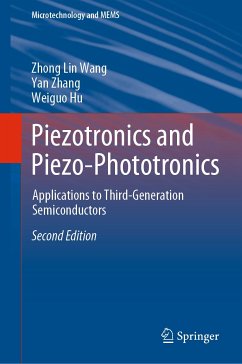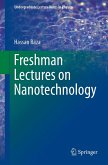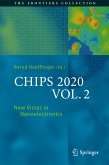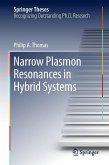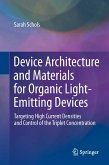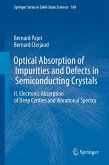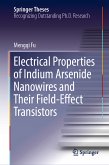Co-authored by the discoverer of the piezotronic effect, this book is a fundamental and comprehensive survey of piezotronics and piezo-phototronics. Piezotronics is a term broadly applied to devices fabricated using the piezopotential as a "gate" voltage to tune/control charge carrier transport at a contact or junction. The piezo-phototronic effect describes the use of the piezopotential to control the carrier generation, transport, separation and/or recombination for improving the performance of optoelectronic devices. The book first introduces the theory of the piezotronic effect and its applications in transistors, sensors, and catalysis. Subsequent chapters comprehensively cover the fundamentals of the piezo-phototronic effect and its impacts on photon sensors, solar cells, and LEDs.
The updated and significantly expanded second edition covers the most recent advances and breakthroughs in this field over the last decade - gas, chemical, and biological nanosensors; quantumdots, wells, and wires; piezocatalysis; the piezo-photonic effect; and the pyro-phototronic effect. This seminal book serves as a basic text for scientists and students in the field of piezotronic devices and third-generation semiconductors.
Dieser Download kann aus rechtlichen Gründen nur mit Rechnungsadresse in A, B, BG, CY, CZ, D, DK, EW, E, FIN, F, GR, HR, H, IRL, I, LT, L, LR, M, NL, PL, P, R, S, SLO, SK ausgeliefert werden.

